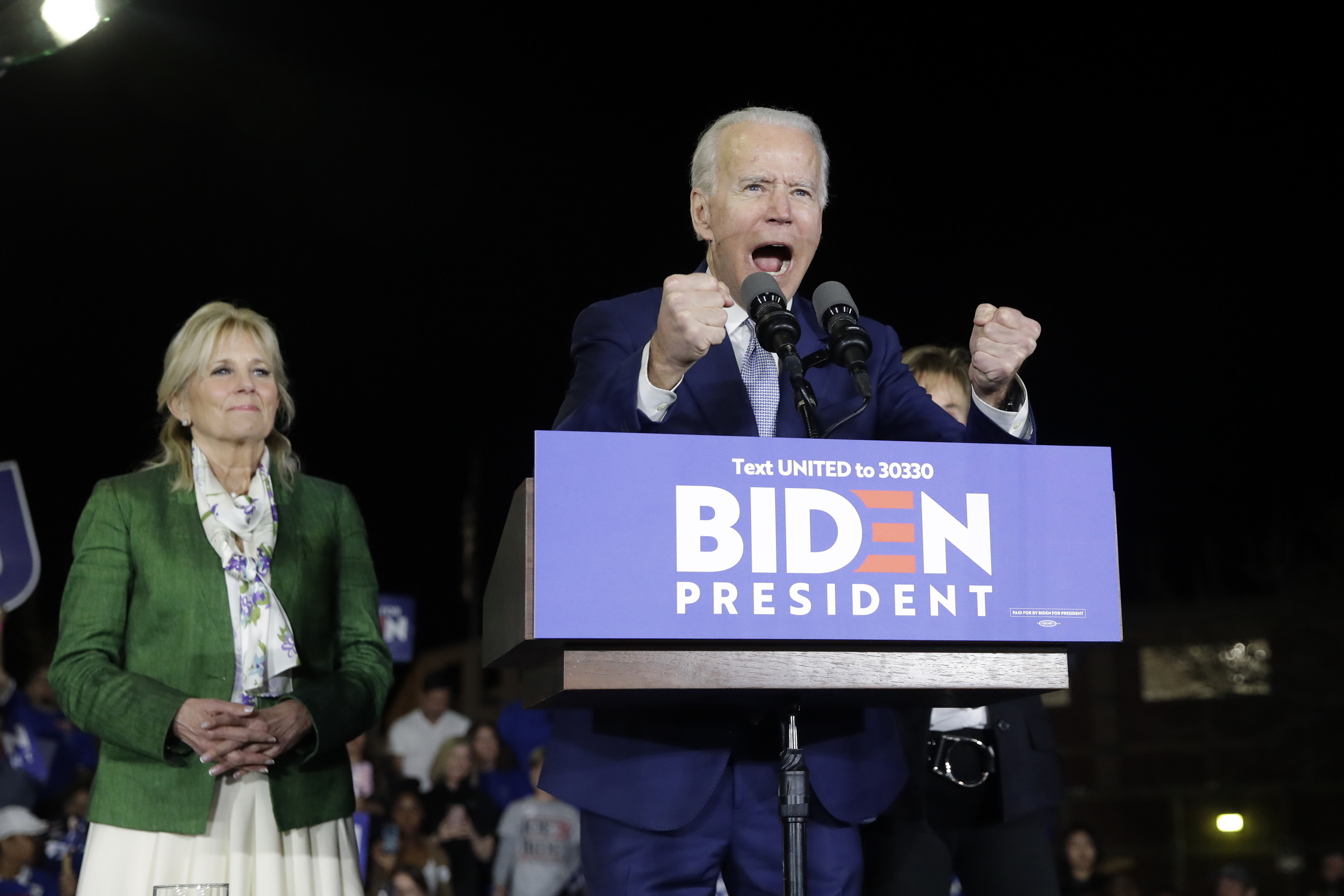
Former Attorney General Jeff Sessions’ bid for redemption evolved into a struggle for political survival as he was forced into a runoff for the Republican Senate nomination from Alabama, a seat he owned for 20 years before his rocky stay in the Trump administration.
In all, Super Tuesday voters in four states — including North Carolina, Texas and California — picked dozens of candidates for Election Day’s contest for control of Congress. The races were giving party leaders an initial look at whether 2020 voters were reacting to the combative era of President Donald Trump by showing a preference for centrist or ideological candidates.
North Carolina Democrats chose establishment-backed moderate Cal Cunningham over a progressive challenger to battle incumbent GOP Sen. Thom Tillis, who was easily renominated. That set the stage for a pivotal November showdown that will help decide which party runs the Senate next year.
We're making it easier for you to find stories that matter with our new newsletter — The 4Front. Sign up here and get news that is important for you to your inbox.
And in Texas, MJ Hegar, backed by national Democrats, was advancing to a runoff for her party's nod to oppose GOP Sen. John Cornyn, who cruised to renomination. Hegar's runoff rival was not clear in incomplete returns early Wednesday.
Sessions, 73, was hoping the sour relationship he endured with Trump as his first attorney general wouldn't derail his Alabama comeback bid. He faces a March 31 faceoff against Tommy Tuberville, a political novice and former Auburn football coach.
In incomplete results, Sessions trailed Tuberville slightly and lagged behind the combined total for Tuberville and Rep. Bradley Byrne, his next nearest rival, by nearly 2-1 — a clear danger sign for a household name like Sessions. Alabama requires a runoff if no candidate receives more than half the primary's votes.
Sessions was one of the most conservative senators when he became Trump's first attorney general in 2017. Their relationship crumbled and Sessions resigned the next year after he enraged Trump by recusing himself from the Justice Department's probe of Russian assistance to Trump's 2016 presidential campaign.
Sessions cast himself as a Trump loyalist anyway. Trump remained virtually silent, which didn't help Sessions. His rivals touted their own fealty to the president, with Tuberville saying in an ad, “God sent us Donald Trump."
On Wednesday morning, Trump weighed in on the results by tweeting new criticism of Sessions for his recusal in the Russia affair.
The GOP primary winner will be favored in November's election in the deep-red state against Sen. Doug Jones, a Democrat. Jones defeated former Alabama State Supreme Court Chief Justice Roy Moore in a 2017 special election after Moore was accused of inappropriate sexual behavior with teenagers decades ago when in his 30s. Moore limped this time a weak fourth-place finish.
The congressional contests were undercards to the day's Democratic presidential primaries in 14 states and one territory. Moderate former Vice President Joe Biden was waging a reinvigorated fight against avowed socialist Sen. Bernie Sanders, all but winnowing the field to a two-candidate competition over confronting Trump in November.
Still, Tuesday's races marked the start of months of congressional primaries.
North Carolina's Tillis is one of the GOP's most vulnerable incumbents as it defends its 53-47 Senate majority. He alienated conservatives by briefly opposing Trump's move to defy Congress and channel federal funds to building a wall along the Mexican border. Tillis' fate will hinge on how Trump, who's since endorsed him, fares in the swing state come November.
Cunningham, 46, is a former state senator who served as an Army lawyer in Iraq and Afghanistan and whose centrist stances were attractive to party leaders.
His closest competitor was liberal state Sen. Erica Smith, who waged a long-shot effort to become the first African American woman elected to the Senate from the South. She was badly outspent, despite $3 million dispersed on her behalf by allies of Senate Majority Leader Mitch McConnell, R-Ky., who'd hoped to undermine Cunningham.
Texas GOP Sen. John Cornyn was nominated for a fourth term and seems difficult for Democrats to dislodge in November.
Hegar, the Democrat, lost a surprisingly close 2018 House race and was backed by her party's hierarchy after former Democratic Rep. Beto O'Rourke declined to challenge Cornyn. She was an Air Force helicopter pilot who was wounded in Afghanistan.
Her challengers included longtime state Sen. Royce West and Cristina Tzintzun Ramirez, a liberal political organizer endorsed by progressive luminaries like Rep. Alexandria Ocasio-Cortez, D-N.Y.
In a district wriggling from the Mexican border to San Antonio, eight-term Democratic Rep. Henry Cuellar, one of the House's most conservative Democrats, was trying to hold his sprawling South Texas district against liberal challenger Jessica Cisneros.
Around Fort Worth, 12-term GOP Rep. Kay Granger foiled a challenge from conservative Chris Putnam. Granger, who has helped cut budget compromises as top Republican on the House Appropriations Committee, was criticized as too moderate by Putnam, who drew support from the anti-spending Club for Growth.
Conservative Texas GOP Rep. Chip Roy will defend his district, which stretches west from Austin and San Antonio, against Democrat Wendy Davis. He will be favored against Davis, who is best known for her 13-hour 2013 filibuster against an anti-abortion bill in the state Senate.
Former Rep. Pete Sessions, defeated in his Dallas district in 2018 after 11 terms, made a GOP runoff for a more Republican-leaning open seat around Waco. And former Trump White House physician Ronny Jackson reached a Republican runoff for a North Texas district.
California, whose heavily Democratic 53-seat delegation is Congress' largest, featured all-party primaries Tuesday. Democratic Rep. Jimmy Gomez of Los Angeles might face a liberal challenger when each contest's top two finishers meet in November.
___
Associated Press writer Gary Robertson in Raleigh, North Carolina, contributed.






